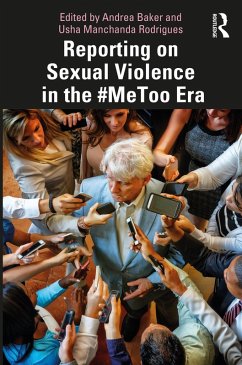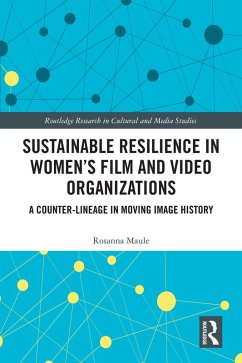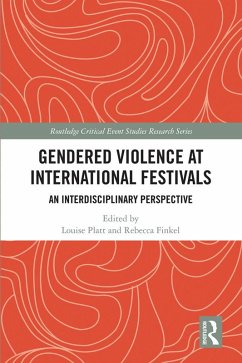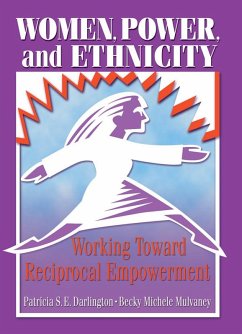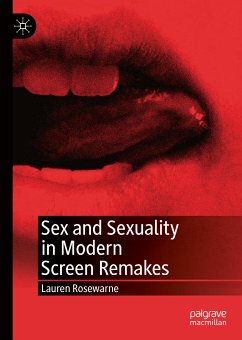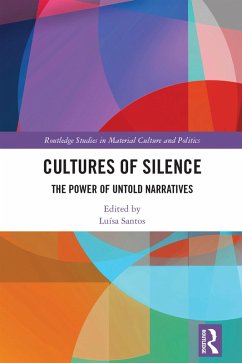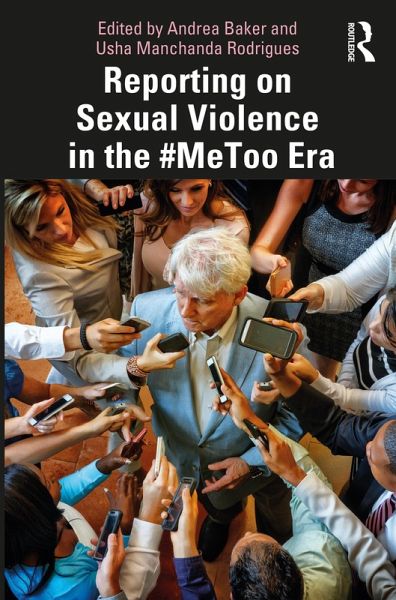
Reporting on Sexual Violence in the #MeToo Era (eBook, PDF)
Versandkostenfrei!
Sofort per Download lieferbar
36,95 €
inkl. MwSt.
Weitere Ausgaben:

PAYBACK Punkte
18 °P sammeln!
This edited collection examines the role of journalism in reviving and reporting on sexual violence in the #MeToo related, hashtag era.Bringing together 15 journalism scholars from around the world, this book explores and offers solutions to the common issues and inadequacies of reporting on sexual violence in the media. Presenting a range of conceptual, methodological, and empirical chapters, the book tackles issues related to, or missing from, journalism in three sections: Part I acknowledges and surveys the role journalism plays in shining a light on social injustices and critiques research...
This edited collection examines the role of journalism in reviving and reporting on sexual violence in the #MeToo related, hashtag era.
Bringing together 15 journalism scholars from around the world, this book explores and offers solutions to the common issues and inadequacies of reporting on sexual violence in the media. Presenting a range of conceptual, methodological, and empirical chapters, the book tackles issues related to, or missing from, journalism in three sections: Part I acknowledges and surveys the role journalism plays in shining a light on social injustices and critiques research deficits in reporting on sexual violence; Part II employs cutting-edge research linked to an intersectional lens to amplify the voices that have been silenced in the media coverage; Part III explores how advocacy, campaign, and solutions journalism offers frameworks for ethical reporting on the shadow epidemic of sexual violence during these COVID-normal times.
This timely and important work connects established and emerging journalism practices to changing discourses about sexual violence. It is an important reading for students and scholars of journalism, gender studies, media studies, communication studies, culture studies, and sociology.
Bringing together 15 journalism scholars from around the world, this book explores and offers solutions to the common issues and inadequacies of reporting on sexual violence in the media. Presenting a range of conceptual, methodological, and empirical chapters, the book tackles issues related to, or missing from, journalism in three sections: Part I acknowledges and surveys the role journalism plays in shining a light on social injustices and critiques research deficits in reporting on sexual violence; Part II employs cutting-edge research linked to an intersectional lens to amplify the voices that have been silenced in the media coverage; Part III explores how advocacy, campaign, and solutions journalism offers frameworks for ethical reporting on the shadow epidemic of sexual violence during these COVID-normal times.
This timely and important work connects established and emerging journalism practices to changing discourses about sexual violence. It is an important reading for students and scholars of journalism, gender studies, media studies, communication studies, culture studies, and sociology.
Dieser Download kann aus rechtlichen Gründen nur mit Rechnungsadresse in A, B, BG, CY, CZ, D, DK, EW, E, FIN, F, GR, HR, H, IRL, I, LT, L, LR, M, NL, PL, P, R, S, SLO, SK ausgeliefert werden.




